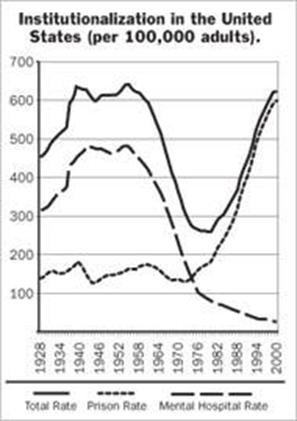Prevention in Mental Healthcare
The quote, “An ounce of prevention is worth a pound of cure,” is commonly attributed to Winston Churchill. This is especially true in mental healthcare. If someone experiences trauma or neglect, this can cascade into other serious psychological conditions. Neglect as an infant or toddler can result in Reactive Attachment Disorder (RAD), which is when the child doesn’t develop healthy attachments to other people. Multiple stressors at once can result in a depressive episode, and if untreated can continue for months. A first episode of psychosis can develop into schizophrenia or schizoaffective disorder without early treatment. A kid with a conduct disorder can develop into antisocial personality disorder as an adult.
These are all cases where early intervention are preferrable to later intervention. Instead, the US, state, and local mental healthcare systems are designed to react to crisis. I am not saying that more people should be hospitalized against their will, but that early outpatient therapy and medication may be able to treat and prevent most extreme behaviors. Since the de-institutionalization of people with serious psychiatric diagnoses in the 1950s, many people are now in prisons. See the below graph.
If the US had early and cheap
access to outpatient psychiatric, therapeutic, and substance abuse services,
then maybe we as a culture wouldn’t need to imprison so many people or have so
many people without housing. People without housing are more likely to have
been diagnosed with a serious mental illness and to have been in foster care.
Instead, the mental healthcare system waits until someone is in a crisis, and
then tries to intervene, rather than react early and proactively. This is also
a political problem, because our politicians need to fund these early
intervention programs.


Comments
Post a Comment